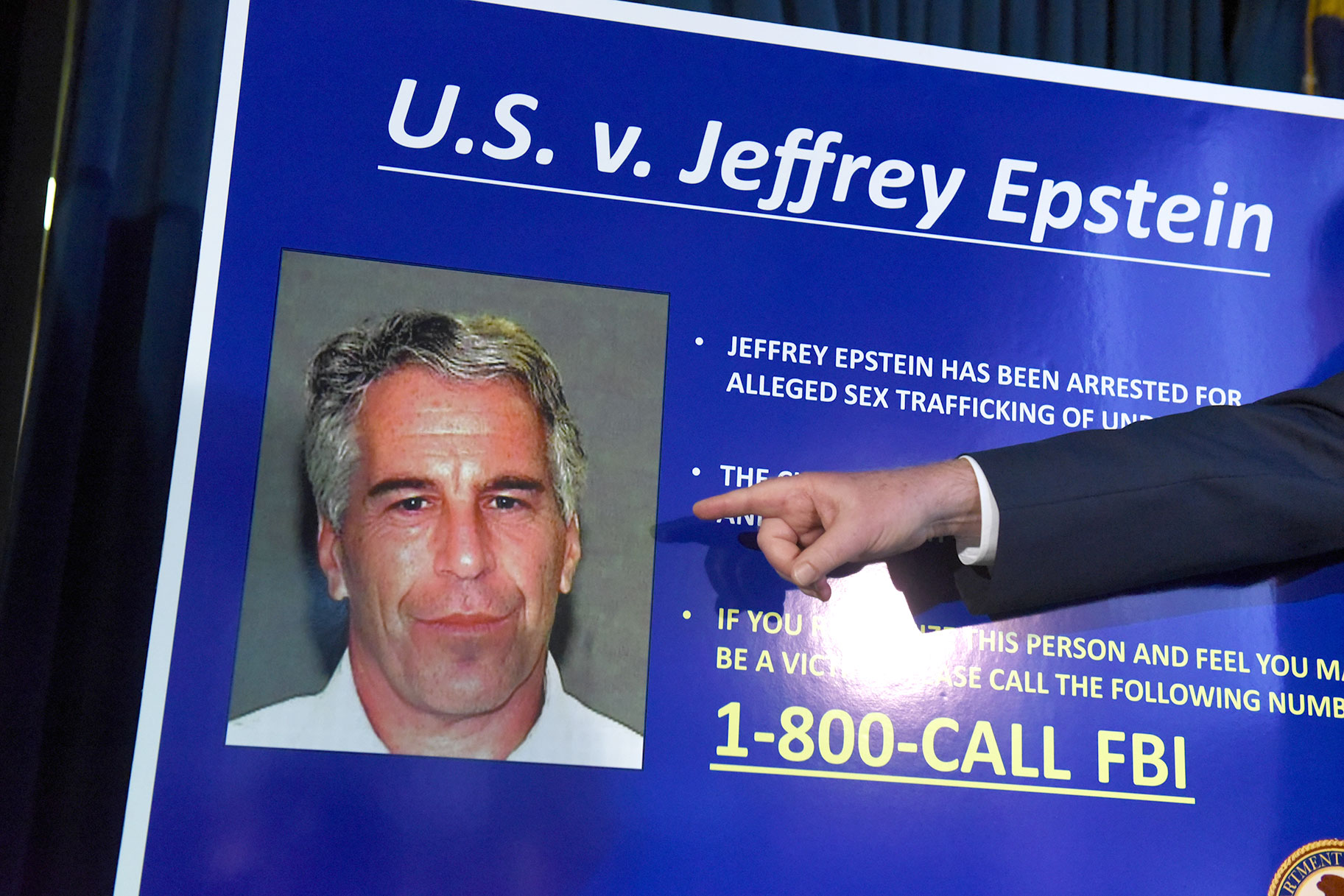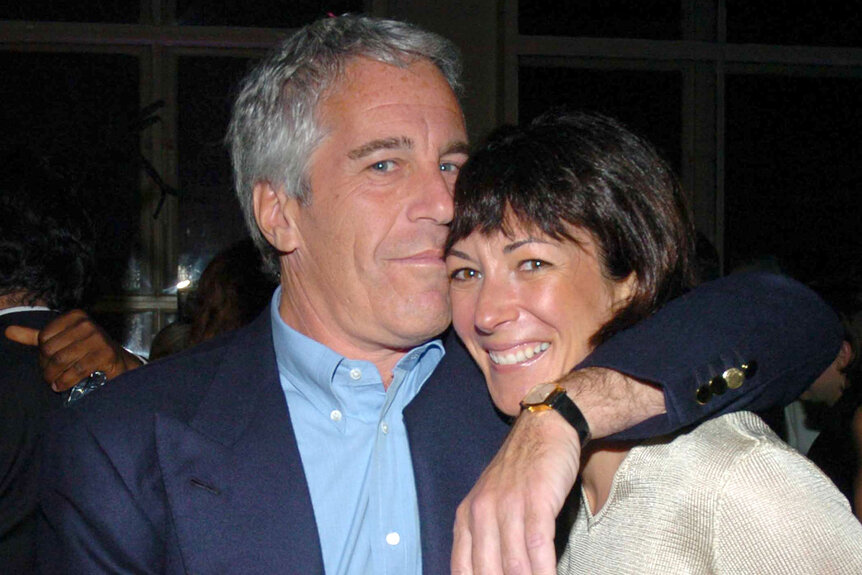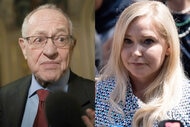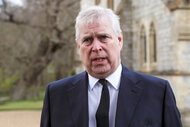Create a free profile to get unlimited access to exclusive videos, breaking news, sweepstakes, and more!
Why Has The Fog Around Jeffrey Epstein's Mysterious Life And Death Persisted?
Two years after the wealthy child sex offender died in jail amid another indictment, the key questions around his money, shocking initial plea deal, and network of powerful friends remain unanswered — for now.

“Some say XBox is better.
Some say Playstation is better.
But deep down inside, we all know…
Jeffrey Epstein Didn’t Kill Himself.”
That’s how it started back in 2019 — as a bait-and-switch gag on a web platform called iFunny. Seemingly overnight, it spiraled into a video meme on the rising video platform TikTok, then Facebook, Twitter, and so on. Soon, it mainstreamed on Fox News when a Navy SEAL ended an interview about military dogs by sneaking in “…and Epstein didn’t kill himself” — referring, of course, to the death of the rich and well-connected registered sex offender in a Manhattan jail on Aug. 10, 2019. An Arizona congressman may have cryptically got in on it. There was an EDKH crypto coin minted. With hindsight, the meme’s cross-ideology popularity and notable endurance feel apropos to the pitch of the past few years in America — a turn of a decade marked by, among other catastrophes, distrust of elites and vicious partisan strife, which for some has spiraled into a propensity for conspiracy, mass delusion and political violence.
The sprawl and the resonance of this catchphrase-conspiracy theory may also be a symptom of sheer rage at the fact that Epstein will never be fully brought to justice — and that the many survivors of his suspected sex trafficking operation, who sought to hold him accountable for years, were now again denied a chance to face him in court. But for many, there's a nag that there are more chips to fall, as that thick fog of uncertainty that followed the schoolteacher-turned-wealth manager across his high-flying life may actually remain after his shock jailhouse death two years ago. Then there’s the feeling that this man knew quite a lot about many of the executives, leaders, and the ultra-wealthy who remain at the helm of global power.
The issue with Epstein's life and death is that the further one wades into the fog, the thicker it seems to become as the questions multiply. Was he actually a billionaire? How, following a 2007 sex trafficking indictment, did he manage to get a sweetheart deal, in which he pleaded guilty to state charges of soliciting and procuring a minor for prostitution and served just 13 months in a work-release program? Did he have compromising material on the rich and powerful — and if so, what was his endgame? And just how many lives did the guy from Coney Island destroy in his path — and who could be next?
“Nobody is going to be held accountable for what happened,” Nina Burleigh, author and executive producer of the Peacock docuseries, “Epstein’s Shadow: Ghislaine Maxwell,” told Oxygen.com of his overnight death while on suicide watch at the Manhattan Detention Center. “Epstein’s whole life, he lived in the shadows. He lived in this criminal underworld at a very high level, between nation-state and big money.”
Epstein’s career in finance began in 1976 as a Bear Stearns floor trader, after the father of one of his students at Manhattan’s prestigious Dalton Preparatory School, where he taught calculus and physics, noticed his flair for mathematics. As was outlined by New York magazine in a 2002 profile, that financier father asked Epstein why such a brilliant mind was in an Upper East Side classroom and not making millions downtown.
A rapid ascent from the market floor saw Epstein ushered into the corridors of the firm’s special clients division. With access to the wealthy and a striking knack for locating tax exemptions and loopholes, he began to gain the trust of his elite clients; soon after he made partner at Bear Stearns, he exited the firm to have a go on his own. J. Epstein and Company’s gimmick was simple: billion-dollar clients only. And that door policy was strict. It also created a mystique, and questions about what his firm was up to, and how the money flowed in, came quickly and still remain.
Today, multiple theories on Epstein and his business dealings swirl. Some have alleged Epstein was involved in shady business practices. Epstein worked for years during the 1980s and 1990s as a consultant for the firm Towers Financial, which was later revealed to be running a massive Ponzi scheme. Tower’s founder, Steven J. Hoffenberg, told CBS News in 2019 that Epstein was involved in the operation.
"He was my best friend for years. My closest friend for years," Hoffenberg said. "We ran a team of people on Wall Street, investment people that raised these billion dollars illegally. He was my guy, my wingman."
One of his key accusers has speculated that Epstein may have kept a trove of information on his powerful friends and acquaintances, material suitable for blackmail. Virginia Roberts Giuffre told CBS News last year that Epstein had surveillance cameras in operation at his properties, where she alleges he provided his friends with young women and girls for sex.
“They were taping everybody, every moment. ... When you walked into the New York mansion to Palm Beach, everything was being filmed,” she said.
Watch Epstein’s Shadow: Ghislaine Maxwell, available to stream now on Peacock
Journalist James B. Steward wrote in the New York Times in 2019 of an interview he’d conducted with Epstein a year earlier at his New York mansion, during which Epstein “claimed to know a great deal about these people, some of it potentially damaging or embarrassing, including details about their supposed sexual proclivities and recreational drug use.”
It has been reported that others hold that Epstein was a spy or intelligence asset.
What is known is that, after he entered the world of finance, Epstein developed a very close relationship with apparel magnate Les Wexner, who gave him extensive control over his vast wealth, according to the New York Times. Wexner was a prominent client of Epstein’s company and Epstein was one of three named trustees of The Wexner Foundation, according to SEC filings. However, the multibillionaire said he severed ties with Epstein in 2007. This happened apparently as, amid the revelations of Epstein’s 2007 Florida indictment, some of Wexner’s money, managed by Epstein, was discovered to have gone missing; records showed “all sorts of irregularities and theft,” Wexner said.
This seemingly never-ending rabbit hole of theories on the Epstein fortune has led many to question whether Epstein was, in fact, a billionaire. Forbes, shunning him from their billionaires list, pointed out in 2010 that “the source of his wealth — a money management firm in the U.S. Virgin Islands — generates no public records, nor has his client list ever been released.” It seems that the further one drills down into what is public about Epstein’s wealth, the thicker the fog becomes.
Yet more gobsmackingly mysterious than the truth of Epstein’s supposed wealth is the sweetheart deal he was handed in 2008 after his indictment and arrest in Florida for sex trafficking of minor girls. Epstein pleaded guilty to state charges of recruiting minors for prostitution and avoided a potential lifetime jail sentence.
That deal has since been widely lambasted as a betrayal of Epstein’s accusers. Several victims came forward and cooperated with a federal investigation after the Palm Beach police’s probe had apparently been stifled by state-level prosecutors in Florida, as former Palm Beach Police Chief Michael Reiter told Dateline in 2019. Then-Palm Beach County State Attorney Barry Krischer has defended his office’s handling of the case, insisting they brought what charges they could, based on the available evidence, and put the onus for Epstein’s subsequent plea deal squarely on federal prosecutors.
The investigation was shut down after former U.S. attorney for the Southern District of Florida Alex Acosta met with Epstein’s legal team and struck the now-notorious deal: 13 months for Epstein in a low-security prison and prosecutorial immunity on any future related charges for him and his cohorts in exchange for a guilty plea to one count of solicitation of prostitution and another count of solicitation of prostitution with a minor. Epstein also had to register as a sex offender in Florida. However, while serving his sentence, he was soon granted 12-hour-a-day, six-day-a-week work release, according to the Palm Beach Post, during which time he allegedly raped a teenage girl he flew to Palm Beach.
The theories have swirled around this bizarre deal for years, including the speculation that Epstein was an intelligence asset or had otherwise become a law enforcement source.
“Given his work, where he was placed in society, and in the nether world of offshore, caged money, he would have been somebody that intelligence agents and law enforcement would have been quite interested in talking to, and would have been a source for them — if not actually an agent,” Burleigh told Oxygen.com by phone. “Intelligence agencies looking for covert money moving, money laundering, weapons deals, all operated in that world. ... You do have the sense that he had to have had some intelligence connections. Or at least people who contacted him for information.”
This notion of Epstein the spy, which is still no more than a theory, does track with what may look like his true life work of “collecting people” by centering himself amid a network of the global elite. Installing himself near the corridors of power, gaining access to executives and world leaders, and inviting them onto his plane and into his home may have given him something that money could never buy: kompromat, as the Russians call it.
Veteran investigative journalist Vicky Ward recalled in a July article for Rolling Stone a prison meeting she had with Hoffenberg, the former Epstein associate, while he was doing time for the Ponzi scheme he’d overseen. Hoffenberg alleged Epstein had been involved in illicit financial schemes and called his style of grift, “playing the box.” According to Hoffenberg, Epstein always ensured that, if somehow his alleged misdeeds were ever to be discovered, his victims would find themselves without recourse — the embarrassment would be too much, or the money would be hidden from, or unreachable to, his now helpless mark.
This detail from Hoffenberg, if true, may explain quite a bit about Epstein’s scheming. The vast network of elites he "collected" over decades, the possibly unknowable amount of wealth, the enraging legal favor he enjoyed, and ultimately, how he was able to take a wrecking ball to the lives of so many.
The Epstein wrecking ball may graze quite a few more lives soon when the case of his former girlfriend Ghislaine Maxwell plays out in a New York court this November. Maxwell faces a slew of federal charges, including enticement and transportation of a minor to engage in illegal sex acts, conspiracy, and perjury. She’s pleaded not guilty in the case. As the proceedings, scheduled for November, approach, onlookers wait with bated breath to see what information, if any, she reveals that could demystify Epstein and his associates.
Maybe, as the official record states, Epstein did kill himself. Speaking with Oxygen.com, Burleigh relayed a telling detail she said a lawyer who was close to Epstein shared about him and what was clearly important to him in life, and perhaps led to his death one day after fresh details of the claims lobbed against him were unsealed.
“He was a control freak,” the lawyer told her. “And the fact that he was a control freak means that it's very believable that he did kill himself. Because he was now never going to be in control."
























